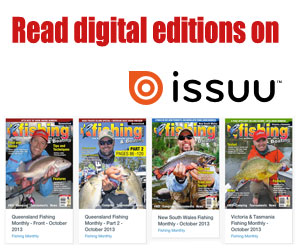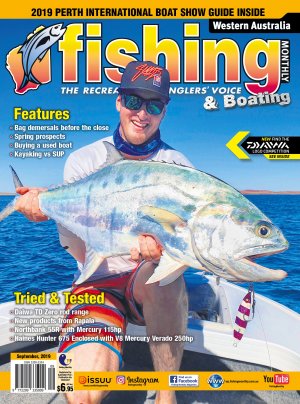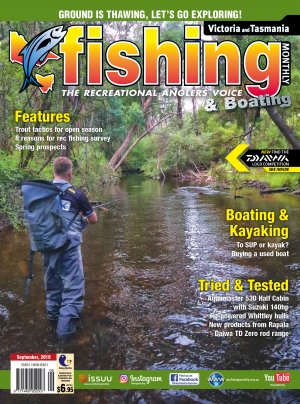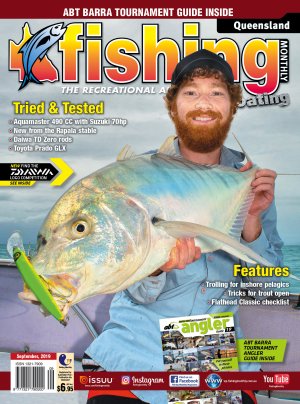If you lived in this part of the world you could be forgiven for thinking we have offended the Gods in some way.
We have had two consecutive seasons of horrendous bushfires, with a major drought in between and still in progress. Because of the drought we lost most of our trout in the rivers, some more in the lakes and then a lot of native fish. Now the ash from the most recent fires has washed into the rivers and lakes because of brief but fierce thunderstorms and we have had plenty of dead fish.
The fish died because the ash changed the chemical composition of the water, because it physically choked fish by clogging their gills and because it deprived them of oxygen by generating algal, bacterial and protozoan blooms.
Huge numbers of trout have died in high-country and low-country streams in a massive area stretching from southern Victoria through NSW to the ACT. The only places where the fish seem to have survived are the lakes, which mostly have not been too badly affected, and the occasional stream where the fire impact was not too severe.
Native fish also have been killed in large numbers. There was a major loss of Murray cod, trout cod and golden perch in the Murrumbidgee River upstream and downstream of Canberra. It was a distressing scene with hundreds, possibly thousands, of dead fish.
Among them were Murray cod to 15kg which we have carefully nurtured over the years from stocked fingerlings and naturally-bred stock. There were small, precious, seriously endangered trout cod which we have spent so much time returning to their native habitat, and small numbers of equally endangered Macquarie perch from our minute residual population. There were masses of golden perch which previously had survived everything else that the Gods have thrown at them in this, the upper limit of their stocked or natural range.
And, as if that wasn't bad enough, guess what has survived better than any other species in the system? That's right – European bloody carp! Some of these aquatic rabbits have been found dead but, by and large, they seem to have become the Houdini fish of the rivers, swimming around in masses of ash and floating bushfire debris. They were, admittedly, coughing and spluttering but still there alive the next day among masses of dead native fish and redfin. You can't win.
The fishing news is not all bad, however. The brief rainstorms we had pepped up the local lakes and there were a few nice catches of golden perch and smallish Murray cod and some good-sized redfin.
Rick, a chef in a local Asian restaurant, may have started a bit of a new trend by fishing for native fish in the local lakes with lures late at night. He doesn't finish work until late so he fishes about 1am onwards. Using standard Storm Wiggle Warts and other lures, in the past few weeks he has accounted for some nice golden perch and Murray cod from one of our small urban lakes, Lake Tuggeranong.
The trick seems to be to work the lure as slowly as possible to give the fish time to catch up to it. Other anglers copying Rick's approach are catching some good fish on surface poppers, especially the medium and large-sized Jitterbugs, particularly in black. It’s worth a try.
The redfin also have provided a lot of fun, with anglers taking them on worms, lure and fly. While most of them are small, an occasional specimen is big enough to eat – and very tasty, too. Recently I photographed a respectable 28 cm fish taken on fly in Lake Burley Griffin.
Googong Dam also fished well as the water rose slightly over new ground. Lawrence Dempseyy top-scored with golden perch around 1kg plus a stunner estimated around 5kg. They were all released, hopefully to help with the anticipated huge task of restocking all of the local waterways with native fish and trout.
In the mountain lakes, Eucumbene, Jindabyne and Tantangara, the fishing picture is confused. The fish don't seem to know what season it is, presumably because of the sudden switch from El Nino to El Nina climatic conditions. Tantangara has mostly fished poorly, the worst in fact that I have seen it since it was first built around 1960. And that's despite the fact that it has huge numbers of browns and rainbows in it.
Eucumbene and Jindabyne have been patchy but recently there have been some reasonable catches and things slowly seem to be returning to normal. At Lake Eucumbene, bait-fishers have caught some good fish at Braemar, Buckenderra and Cobrabald Bay. Lure-fishers have fared reasonably well at Buckenderra and Providence and fly-fishers have had the best of it around Providence Arm.
A lot of browns have decided that it is survival time and have headed vaguely towards the Eucumbene River, triggering thoughts of an early spawning run if we get rain. Similarly, in Jindabyne, lots of mostly smallish fish have moved into the Thredbo River, presumably with thoughts of an early breeding season.
Top lures at the moment are Rebel Crickhoppers and broken back Rebel Minnows. The best of the Tassie Devils have some lovely evocative names – Bronze Four X (No 3), Tequila Sunrise (No 5), Herbie (No 30), Green Streaker (No 79), Black Toad (No 84) and Rowley's Riot ( No 89) – which makes you almost want you to go fishing just so you can see what they look like.
As Winter approaches, the adage applies – go deep and go slow. That's why anglers are choosing the Dual Depth versions of Tasmanian Devils in the colours available, and using lead-core line as standard tackle. We have already had a dose or three of the white stuff and it won't be long before the bigger snowfalls get under way. It will be a welcome relief from the blackened, burnt and depressing landscape that has greeted us for the past many months. For once, the clarion call around here has been, ‘roll on Winter’.
A group who went bass fishing in the Clyde River left their run a bit late. They were met with heavy rain, a swollen river and a waterway full of disgusting debris which seems to have come from a current logging operation upstream of Shallow Crossing.
This seems to be a heavy price to pay for timber, no matter how valuable it is. I hope, at least, it is being put to good use in the housing industry within Australia and not being shipped to Japan as one more Nip Ship Chip Trip to make paper bags.
Captions
1
Lawrence Dempsey with his stunning 5 kg golden perch from Googong Reservoir.
Photo: David Rhind
2
The exposed and crusted shoreline of Googong Reservoir is indicative of the ongoing drought in the region.
3
A precious golden perch, one of the few local survivors of the bushfire debris-choked rivers around Canberra.
Reads: 1165



